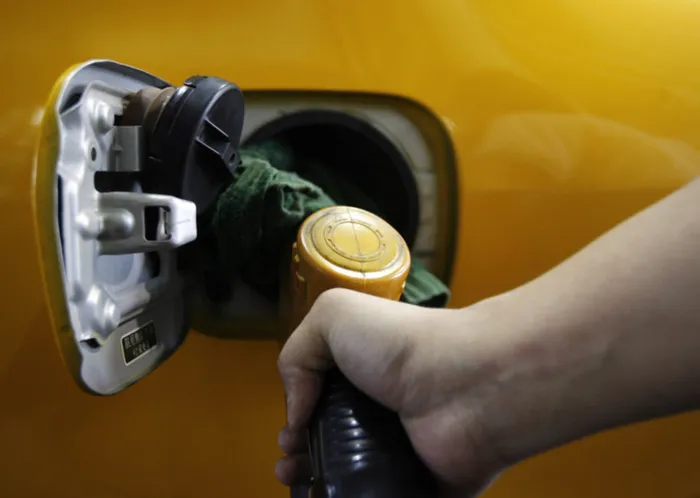DA on fuel price review

A worker fills up a taxi's fuel tank at a gas station in Taipei April 23, 2008. Oil held above $118 on Wednesday but stayed on the boil due to a weakening dollar, supply disruptions in Nigeria and fears that a refinery strike in Scotland could hit production in the North Sea. REUTERS/Nicky Loh (TAIWAN) A worker fills up a taxi's fuel tank at a gas station in Taipei April 23, 2008. Oil held above $118 on Wednesday but stayed on the boil due to a weakening dollar, supply disruptions in Nigeria and fears that a refinery strike in Scotland could hit production in the North Sea. REUTERS/Nicky Loh (TAIWAN)
The Department of Energy’s decision to investigate the rocketing fuel price has been welcomed by opposition parties, economists and leaders in the motor industry.
But they all agree the government needs to do more to help alleviate the burden on consumers.
The department’s Thandiwe Maimane announced the decision, saying it would “embark on a review of the basic fuel price during the 2012/13 financial year”.
Lance Greyling, DA spokesman on energy, said much could be done by the government to reduce the price.
“The (most recent) dramatic 71c a litre increase could have been much lower if government used a more sensitive formula to determine the price.”
The current formula combines the basic fuel price and a number of additional margins, including government taxes and levies.
Greyling said: “The formula needs to be less responsive to short-term fluctuations in the international oil price, and the rand-dollar exchange rate. These fluctuations are often driven by market sentiment rather than by supply and demand fundamentals in the global market.”
He added that the Central Energy Fund based the basic fuel price mostly on the international rand-dollar exchange.
“As South Africa imports the vast majority of its oil, these dynamics are inescapable for the most part. The formula we use to determine petrol prices should be based on the long-term fundamentals in the global oil market.”
The government taxes and levies should also be reduced, as these included levies for fuel, an equalisation fund, the Road Accident Fund, together with customs and excise duties.
Gary Ronald, AA public affairs manager, said there was merit in re-examining the formula used to set the fuel price.
“It will be a good thing if a reduction can be found, and it has been done before.
“In 2004 there was an investigation which brought a 20 percent decrease in the fuel price.”
Ronald said the reduction might seem like a one-off to the consumer, but it would benefit the long-term pricing of petrol.
The current situation suggested another 30c price hike by the end of the month. “Therefore, if a reduction is found it will only come at the end of May.”
Greyling said in the past decade SA petrol prices had increased by an average 11 percent annually.
This rate was unsustainable, “especially given its disproportionate impact on the poor”.
He added that the increases had a negative effect on the economy and growth potential, which was why the government should do all it could to cushion the hikes. - Saturday Argus
junior.bester@inl.co.za